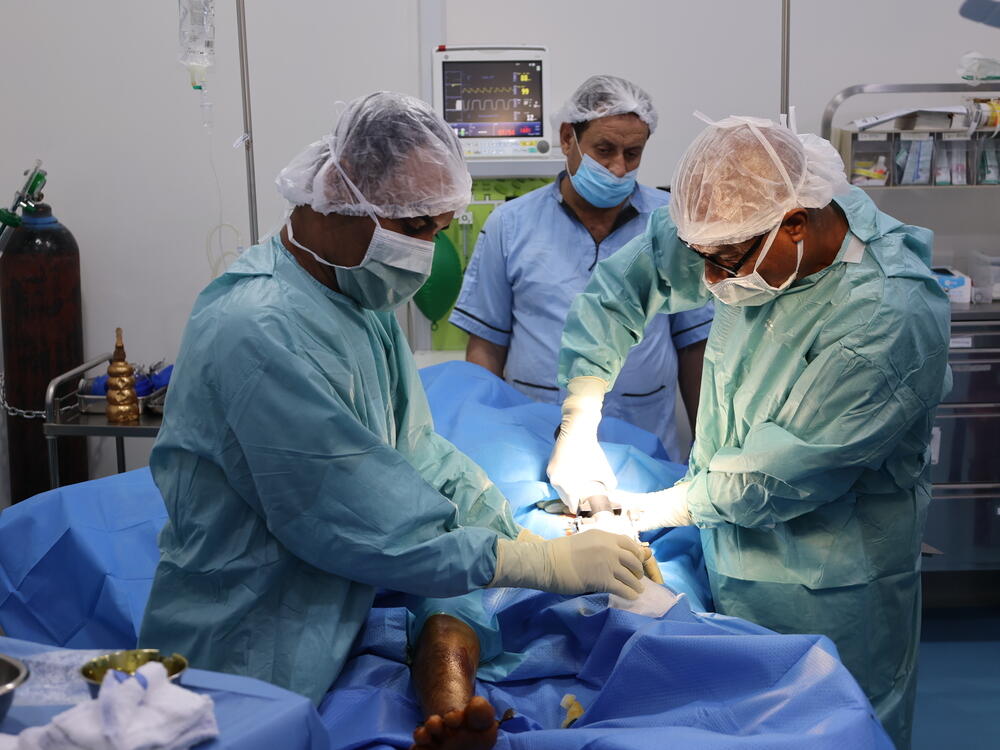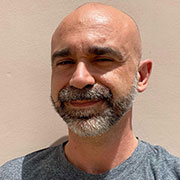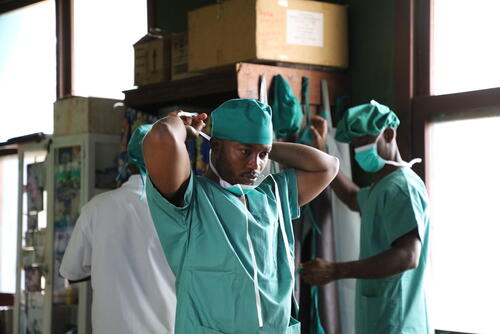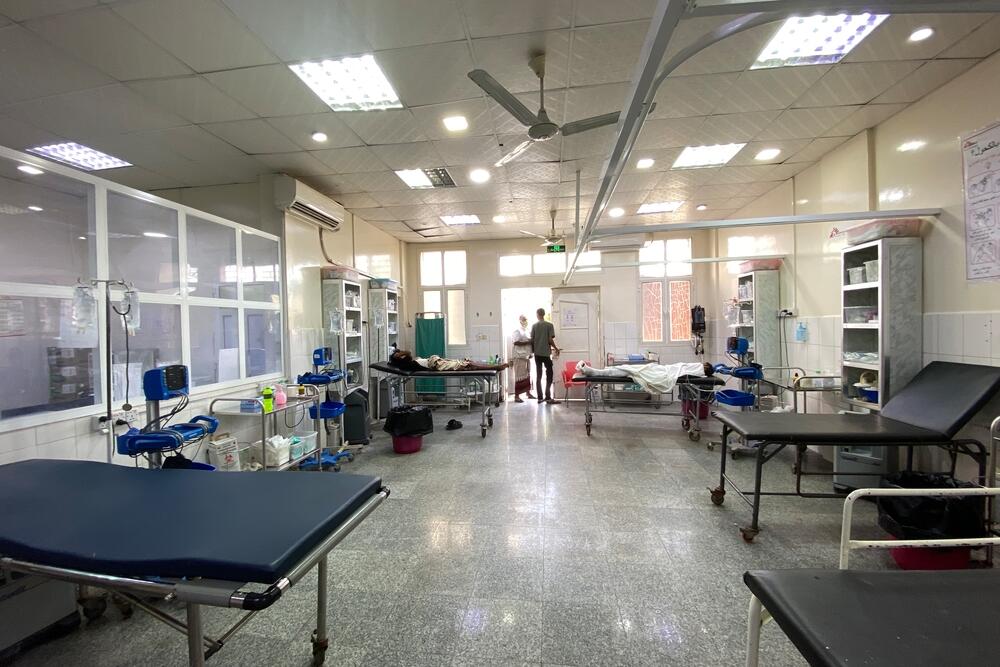Yemen: After the gunshot
When a young man is shot in Aden, Yemen, the race to save his life begins. Anaesthetist Antonio Bellini takes us through the journey.
When someone dies after a severe traumatic injury, it’s usually in one of three ways: three key moments when the risks to life are highest.
The first is at the very beginning, within minutes of the bomb blast, or the gunshot wound, or the accident, when major bleeding must be brought under control.
The next is at the hospital. If someone makes it there, their chances of survival start to improve. But bleeding and its associated complications are still the biggest threats to life.
And then there are the days after the injury, when the person has received medical care to stabilise the bleeding and repair some of the damage, but they remain in a condition of extreme fragility. At this point, infections become life-threatening.
In Aden, Yemen, Médecins Sans Frontières / Doctors Without Borders (MSF) runs a trauma hospital that is ready to deal with cases like this every day.
Damage control
Ismail* was shot as he attempted to cross the city. The details of what happened and why he was shot are unclear, but someone looked out for him that day because he was alive when he arrived at the hospital.
The emergency department at Aden Trauma Hospital may not have the most advanced equipment, but it does have a team who are very, very skilful and experienced. Ismail was triaged, and, in a matter of minutes, he was on his way to one of the hospital’s three operating theatres.
As in most hospitals in humanitarian environments, there is no CT scanner. That means that the only way for a surgeon to understand what’s happening when someone is severely injured is to see with their own eyes. So, Ismail was taken for an emergency laparotomy – essentially a large incision in the belly.
“Thanks to the surgical team he was alive, now it was our job to make sure he stayed that way”
At this point, alongside the scalpel and the anaesthetic, the most important tool the team had access to was blood.
Fortunately, Aden Trauma Hospital has a functional blood bank that is responsive to urgent needs. Running a blood bank is challenging, particularly storing enough for a complex injury, but the team in Aden make it work.
With the blood they needed to keep him alive, the surgical team was able to perform what’s known as a “damage control” surgery for Ismail. This kind of surgery is done against the clock, as it’s vital to minimise the amount of time a severely injured patient is under anaesthetic. The team worked quickly, doing only what was strictly necessary to save Ismail’s life in that moment.
Then he was brought to the Intensive Care Unit (ICU). Thanks to the surgical team he was alive, now it was our job to make sure he stayed that way, despite the trauma of the injury and the surgery itself.
Life-support
When a patient has a damage control surgery, the whole team understands that this is only the first step.
As is standard practice, Ismail was brought to the ICU with his surgical incision still open, wrapped in sterile plastic. This would allow the team to do a second operation the next day.
There is a lot that can go wrong for a patient in this fragile condition, but in ICU we have tools that can help to keep a patient stable. Crucially, in Aden Trauma Hospital we were able to offer life-support that includes a ventilator.
Life-support machines are highly technical pieces of equipment. They provide breathing support, dialysis and transfusion, allowing very strong medications to be administered much more slowly than an Intravenous drip.
These machines require a consistent power supply and specialist expertise that is just not available in many of the places where MSF works. But Aden Trauma Hospital is different.
Ismail was kept unconscious, on life-support, with a team of highly trained nurses providing 24/7 monitoring. In a normal ward, a nurse might be responsible for 12 patients, but in ICU that number is only one or two, as a patient’s condition can change rapidly.
Our next challenge was temperature. One of the main functions of the skin is to help us maintain body temperature. But when someone has a large wound or they lose a lot of blood, the internal body temperature can plummet, which can be fatal.
So, once Ismail was out of surgery, we used a special warming blanket and heated some bags of fluid in the microwave, which we packed around his body.
It worked. Ismail made it through the night, and the next day, he went back to the operating theatre for another surgery. Keeping him on life-support meant that we’d been able to avoid the potential complications from multiple rounds of anaesthesia.
In total, Ismail needed five surgeries to repair the damage to his abdomen and the bones in his legs.
No doubts
For the next few days, Ismail remained on life-support, being fed through a tube in his nose.
In high-resource health settings, patients are given specially formulated liquid food produced by pharmaceutical companies. But in Aden, the hospital kitchen produced the food themselves, processing it to a liquid so it could be squeezed through the tube. It worked really well, and after six or seven days, Ismail was well enough to come off life support.
I don’t have any doubts that without access to safe surgery, Ismail would have died. But in the hours and days after his arrival at the hospital, many other teams were vital to his survival. ICU is one example, and the lab team is another.
Again, many hospitals in humanitarian crisis zones don’t have access to a full microbiology lab. In Aden, we not only had a lab, but we also had a doctor who had been trained by MSF in antibiotic stewardship.
Bullets cause highly contaminated wounds, and we know that many patients who survive a surgery will still be at risk of dying from an infection. But with lab testing and proper stewardship, the team in Aden ensured that Ismail got exactly the right medication, whilst limiting the spread of life-threatening antibiotic-resistant bacteria.

Help us prepare for the next emergency
Epilogue
I wrote at the start that when someone dies after a severe traumatic injury, it’s usually in one of three ways. But each one of those is an opportunity to save a life.
Someone in the street had taken that first step and rushed Ismail to our hospital, and the MSF team: the nurses, the surgeons, the lab technicians, had worked together to do the rest. In a remarkably short time after he’d arrived with tremendous injuries, Ismail was well enough to leave, just one of the thousands of patients the team treat every year.
*Name changed to protect identity
MSF and the Yemen civil war
Yemen is in the middle of a complex humanitarian crisis driven by a brutal civil war.
Indiscriminate attacks and chronic shortages of medical staff and supplies have led to the closure of many of Yemen's healthcare facilities.
More than 4.5 million people have been displaced since the war started in 2015. With an estimated 21 million currently in need of humanitarian assistance, our activities in Yemen are among our most extensive worldwide.



